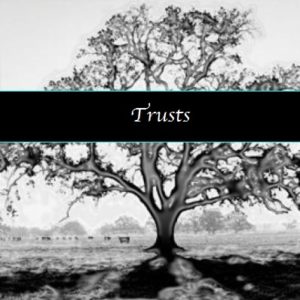Estate Planning with Trusts
North Carolina Trust Attorney | South Carolina Trust Attorney
A Trust is an arrangement under which the trustee holds legal title to property for the benefit of the beneficiaries.

Trusts serve a wide range of functions and may be appropriate for a variety of financial circumstances and goals. A common misunderstanding is that trusts are only for the very wealthy. In reality, trusts can be used in variety of different circumstances and are a prevailing way to manage assets. A carefully crafted trust can have significant financial advantages, protect clients from unnecessary taxes, and help transfer assets more efficiently and effectively.
Need legal advice on setting up a trust?
Trusts can often be confusing conceptually for clients who hear the word used differently in everyday life. “Trust funds” are often mentioned in movies and pop-culture. There are many different types, which can be used for estate planning, asset protection, tax planning, or privacy purposes. Whether you are attempting to preserve benefits for a child with a disability, avoid assets passing through probate, generously supporting a charitable cause, or create tax advantages, one of the many types of trust may be the legal tool you need to achieve your objective.
Types of Trusts
A few of the most common trusts that our North Carolina trust attorney and South Carolina trust lawyer frequently prepare are as follows:
- Special needs trusts
- Living Trusts
- Revocable Living Trust
- Revocable and irrevocable trusts
- DomesticAsset protection trusts
- NFA gun trusts
- Charitable remainder trusts
- Qualified Personal Residence Trust (QPRT)
- Irrevocable Life Insurance Trust (ILIT)
- Testamentary trusts
- Inter vivos trusts
- Trust for animals (Pet Trusts)
North Carolina & South Carolina Trust Law
North Carolina Trust Code
The North Carolina Uniform Trust Code, like many other states, is a variation of the Uniform Trust Code, which is a model of laws for regulating and establishing trusts. The North Carolina Uniform Trust Code (NCUTC) codified in North Carolina General Statutes 36C became effective January 1, 2006 and applies to any express trust, private or charitable trust. Read more about North Carolina Trust Laws.
South Carolina Trust Laws
The laws governing trusts in South Carolina are codified in the South Carolina Trust Code in Article 7 Title 62 of the South Carolina Probate Code. The SC Trust Code applies to all express trusts, which includes both inter vivos and testamentary trusts, as well as trusts created pursuant to a statute, judgment, or decree administered in the manner of an express trust.
Each state has its own trust code and a trust created under that state is governed by the laws of creation as well as the terms of the trust. When creating a trust, it is important to know the formalities and laws of the state of formation because some jurisdictions will allow types of trusts that are not permitted in other states. One example of which is a self-settled spendthrift trust which is not permitted under the laws of South Carolina.
Trust Planning – Lawyers Experienced Drafting Trusts
If you are considering a trust for your estate planning or would like to learn more about different types of trusts and how they could benefit you from attorneys experienced in both North Carolina Trust Law and South Carolina Trust law, call (704) 608-3429 or E-mail info@nosaljeterlaw.com.
Office hours by appointment: 9:00 am to 5:00 pm Monday-Friday.
Lake Norman Office
Fort Mill Office
*Our Fort Mill SC office is our mailing address for all written correspondence.
Copyright © 2025 Nosal & Jeter, LLP All Rights Reserved. Disclaimer: This is general information provided by Nosal & Jeter, LLP and is not legal advice.

